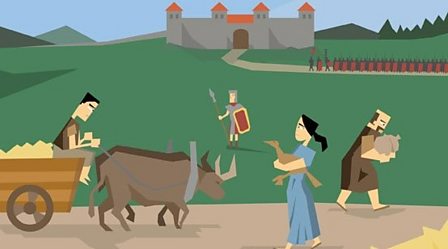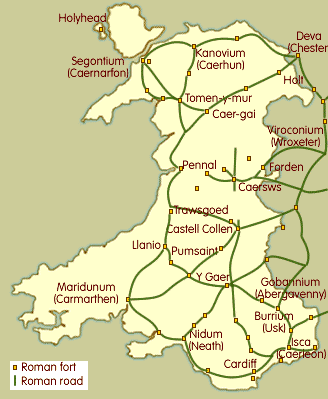It is well known that many words in the English language have Latin roots. What is less well known is the Latin influence on the Welsh language. In fact, many of the words brought over by the Romans were first absorbed into Brittonic – the ancestor of the Welsh, Breton and Celtic languages.

Well before Old and Medieval English were the main means of communication throughout England, Brittonic was the language of the people living on the south coast of England. It was here that the Romans first landed in 55BC. The Romans carried their invasion North and West, integrating with the local people wherever they settled.
Later, Brittonic speakers in England were pushed west – by the Angle and Saxon invaders etcetera – and English, with its Germanic and Norse roots brought by the new waves of invaders, became the predominant language in England. Meanwhile, the Welsh language evolved from its Brittonic origins, along with the many everyday Latin words it had absorbed from the Roman invaders.

Examples of such Welsh words include ffenestre (from the Latin fenstra) – window; pobl, (from the Latin populus) – people; pont (from the Latin pons) – bridge; *porth (from the Latin porta) – door or gate; ysgriffenu (from the Latin scribere) to write; parod (from the Latin paratus) – ready; corff (from the Latin corpus) – body.
Aha! you may say, some of these words are in English too – e.g. corpse. But these words were introduced into English several centuries later, either back from the Welsh or via languages on the continent. For example, The Latin word for beard – barba – had existed in its Welsh form – barf – for centuries before it appeared in English in the form of barber – one who cuts beards. But this word came via French in the fourteenth century, not from the Welsh. Corpse may have come directly from Welsh Latin, but again it did not appear in English till the fourteenth century.
Welsh Latin is distinct from English Latin in that the native Brittonic speakers in Wales regularly used the spoken Latin they’d heard used by the Roman soldiers and traders they interacted with. These words were subsequently absorbed into every-day Welsh – such as the Welsh words listed above for window, bridge, and door.
English Latin, on the other hand, was written rather than spoken. It was more cerebral, and related to medicine, the law, or the church. Words like biscop – bishop – from the Latin episcopus; or clavicle for the collar bone – from the Latin clavicula; or phrases like habeus corpus in legal documents.
*And to think I lived in Porth (the little town at the gateway to the Rhondda Valleys) for many years, with no idea, until recently, of the name’s Latin origins.
Links to my books and social media
You can find all my books and short stories on Amazon books, At least one story always free. ALL BOOKS FREE ON KINDLE UNLIMITED